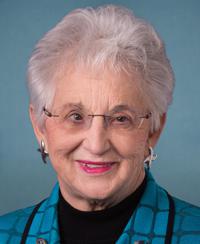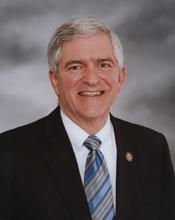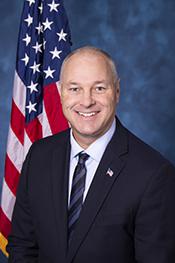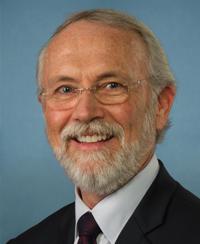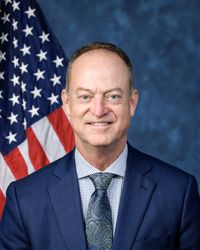0
0
0
Title X Abortion Provider Prohibition Act
2/11/2025, 5:08 AM
Summary of Bill HR 343
Bill 119 HR 343, also known as the "Title X Abortion Provider Prohibition Act," aims to make changes to Title X of the Public Health Service Act. The main goal of this bill is to prevent family planning grants from being awarded to any organization that provides abortion services.
If passed, this bill would prohibit any entity that performs abortions from receiving funding through Title X, which is a federal program that provides funding for family planning and reproductive health services. This means that organizations such as Planned Parenthood, which offer both family planning services and abortion services, would no longer be eligible for these grants.
Supporters of the bill argue that taxpayer dollars should not be used to fund organizations that provide abortions, as it goes against their beliefs. They believe that this bill would ensure that federal funding is not being used to support abortion services. Opponents of the bill argue that it would restrict access to essential reproductive health services for low-income individuals and communities. They argue that organizations like Planned Parenthood play a crucial role in providing affordable and accessible family planning services, and that cutting off funding to these organizations would harm those who rely on their services. Overall, Bill 119 HR 343 is a controversial piece of legislation that raises questions about the intersection of federal funding, abortion services, and access to reproductive health care. It is currently being debated in Congress, and its outcome will have significant implications for the future of family planning services in the United States.
If passed, this bill would prohibit any entity that performs abortions from receiving funding through Title X, which is a federal program that provides funding for family planning and reproductive health services. This means that organizations such as Planned Parenthood, which offer both family planning services and abortion services, would no longer be eligible for these grants.
Supporters of the bill argue that taxpayer dollars should not be used to fund organizations that provide abortions, as it goes against their beliefs. They believe that this bill would ensure that federal funding is not being used to support abortion services. Opponents of the bill argue that it would restrict access to essential reproductive health services for low-income individuals and communities. They argue that organizations like Planned Parenthood play a crucial role in providing affordable and accessible family planning services, and that cutting off funding to these organizations would harm those who rely on their services. Overall, Bill 119 HR 343 is a controversial piece of legislation that raises questions about the intersection of federal funding, abortion services, and access to reproductive health care. It is currently being debated in Congress, and its outcome will have significant implications for the future of family planning services in the United States.
Congressional Summary of HR 343
Title X Abortion Provider Prohibition Act
This bill prohibits the Department of Health and Human Services (HHS) from awarding family planning grants to entities that perform abortions or provide funding to other entities that perform abortions. To receive a grant, an entity must certify it will refrain from those activities during the grant period.
The bill provides exceptions for abortions (1) in cases of rape or incest; or (2) when the life of the woman is in danger due to a physical disorder, injury, or illness. It also exempts hospitals unless they provide funds to non-hospital entities that provide abortions.
HHS must submit a report to Congress annually on this prohibition.
Read the Full Bill
Current Status of Bill HR 343
Bill HR 343 is currently in the status of Bill Introduced since January 13, 2025. Bill HR 343 was introduced during Congress 119 and was introduced to the House on January 13, 2025. Bill HR 343's most recent activity was Referred to the House Committee on Energy and Commerce. as of January 13, 2025
Bipartisan Support of Bill HR 343
Total Number of Sponsors
4Democrat Sponsors
0Republican Sponsors
4Unaffiliated Sponsors
0Total Number of Cosponsors
80Democrat Cosponsors
0Republican Cosponsors
80Unaffiliated Cosponsors
0Policy Area and Potential Impact of Bill HR 343
Primary Policy Focus
Alternate Title(s) of Bill HR 343
To amend title X of the Public Health Service Act to prohibit family planning grants from being awarded to any entity that performs abortions, and for other purposes.
To amend title X of the Public Health Service Act to prohibit family planning grants from being awarded to any entity that performs abortions, and for other purposes.
Comments
Sponsors and Cosponsors of HR 343
Latest Bills
Holocaust Expropriated Art Recovery Act of 2025
Bill S 1884December 12, 2025
Enduring Justice for Victims of Trafficking Act
Bill S 2584December 12, 2025
Increasing Investor Opportunities Act
Bill HR 3383December 12, 2025
Great Lakes Fishery Research Reauthorization Act
Bill S 2878December 12, 2025
Electric Supply Chain Act
Bill HR 3638December 12, 2025
State Planning for Reliability and Affordability Act
Bill HR 3628December 12, 2025
A joint resolution providing for congressional disapproval under chapter 8 of title 5, United States Code, of the rule submitted by the Office of the Secretary of the Department of Health and Human Services relating to "Policy on Adhering to the Text of the Administrative Procedure Act".
Bill SJRES 82December 12, 2025
Providing for consideration of the bill (H.R. 2550) to nullify the Executive Order relating to Exclusions from Federal Labor-Management Relations Programs, and for other purposes.
Bill HRES 432December 12, 2025
Mining Regulatory Clarity Act
Bill HR 1366December 12, 2025
Legacy Mine Cleanup Act of 2025
Bill S 2741December 12, 2025
